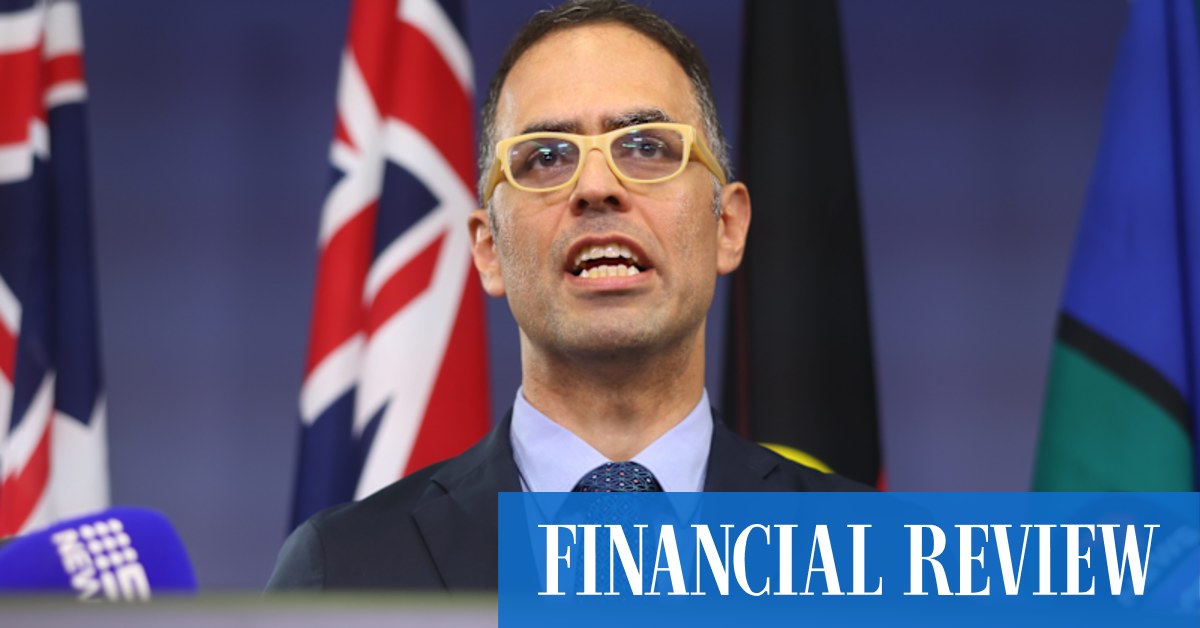NSW Fights for GST Reform: Mookhey's Push for a Fairer Deal
The New South Wales (NSW) government is intensifying its campaign for a fairer GST distribution, with Treasurer Daniel Mookhey leading the charge. NSW, consistently a net contributor to the national GST pool, argues the current system disadvantages states like theirs, hindering vital infrastructure projects and essential services. This ongoing battle highlights a critical issue in Australian federalism and the need for urgent reform.
The Core of the Issue: NSW's GST Disadvantage
The GST, a cornerstone of Australia's tax system, is designed to distribute revenue across the states and territories. However, NSW's contribution significantly outweighs its return, a disparity that Mookhey argues is unsustainable. This imbalance impacts the state's ability to fund crucial initiatives, including:
- Infrastructure Development: Building and maintaining vital roads, public transport, and other infrastructure projects are hampered by the lack of sufficient GST revenue.
- Healthcare Services: Funding for hospitals, medical facilities, and essential healthcare programs is directly affected by the inequitable GST distribution.
- Education Funding: Investment in schools, universities, and vocational training suffers due to the shortfall in GST revenue.
Mookhey's push for reform centers on achieving a more equitable distribution that reflects NSW's significant contribution to the national economy. He points to the state's strong economic performance and its disproportionately high GST contribution as evidence of the unfairness of the current system.
Mookhey's Strategy: Lobbying and Public Pressure
Mookhey's approach involves a multi-pronged strategy combining direct lobbying of the federal government with a concerted public awareness campaign. He's actively engaged in discussions with federal counterparts, emphasizing the need for a fundamental review of the GST distribution formula. Simultaneously, his public statements and media appearances aim to raise public awareness of the issue and garner support for his proposed reforms.
This includes highlighting the specific impacts of the inequitable GST distribution on everyday NSW residents, connecting the abstract issue of federal funding to tangible consequences in their daily lives. This strategic communication is designed to generate public pressure on the federal government to address the issue effectively.
Calls for a Vertical Fiscal Imbalance Review
The current debate underscores the long-standing issue of vertical fiscal imbalance in Australia. This imbalance refers to the disparity between the revenue-raising powers of the states and their responsibilities for delivering essential services. Many experts agree that a comprehensive review of the system is overdue. Mookhey's campaign directly targets this imbalance, advocating for a fairer share of GST revenue for NSW.
This isn't a new debate. Over the years, several proposals for GST reform have been put forward, including changes to the distribution formula and alternative funding models. However, achieving consensus and implementing meaningful changes remains a significant political challenge.
What's Next? The Road to GST Reform
The success of Mookhey's push remains to be seen. The federal government's response will be crucial, and negotiations will likely be complex and protracted. However, Mookhey's sustained campaign puts the issue firmly on the national agenda, forcing a much-needed conversation about fairness and equity in Australian federal finance. The outcome will significantly impact NSW's ability to deliver essential services and support its continued economic growth.
Further Reading: For more information on the GST and vertical fiscal imbalance, you may wish to consult resources from the Australian Treasury and the Productivity Commission. [Link to relevant Australian Treasury website] [Link to relevant Productivity Commission website]
Call to Action: Stay informed on this critical issue. Follow the NSW Treasurer's office for updates and engage in the conversation by contacting your local representatives to express your views on GST reform.

